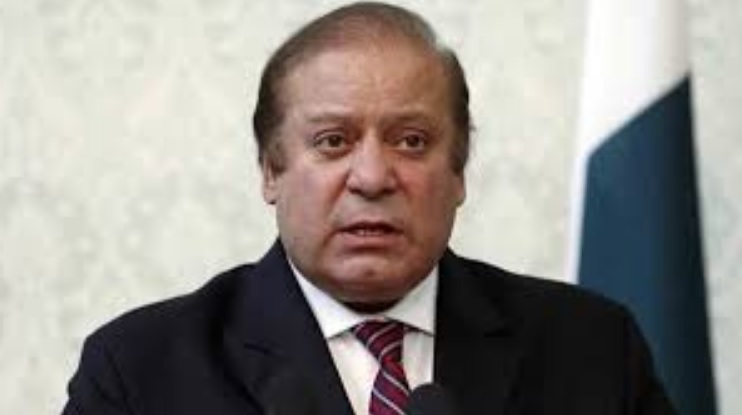
Pakistan 2024 poll: Nawaz Sharif or Bilawal Bhutto-Zardari? Implications for India?
Following former Prime Minister Imran Khan’s incarceration, Nawaz Sharif’s PML-N is poised to emerge as the leading party in the upcoming Pakistan elections.
On Thursday, February 8, Pakistan is conducting its 12th national general elections amidst numerous crises in the 241 million-strong nuclear-armed nation. The Pakistan Muslim League Nawaz, led by Nawaz Sharif, is expected to secure the top position, with the Pakistan Peoples Party, under Bilawal Bhutto Zardari, projected to come in second place, followed by Imran Khan’s Pakistan Tehreek-e-Insaf and other parties, according to The News.
Despite the imprisonment of former Prime Minister Imran Khan, Nawaz Sharif is expected to be the primary contender for the prime ministerial position. The candidates from Imran Khan’s Pakistan Tehreek-e-Insaf (PTI) are participating in the elections as independents following the Supreme Court’s affirmation of the election commission’s decision to strip the PTI of its distinctive election symbol, the cricket ‘bat’.
Nawaz Sharif, aged 74, is poised to pursue the prime ministership for an unprecedented fourth term in the upcoming Thursday’s election. The electoral competition also includes the Pakistan Peoples Party led by Bilawal Bhutto-Zardari, who has been designated as the party’s prime ministerial candidate.
Regardless of the outcome of the February 8 elections, the victor will face significant challenges ahead, given the precarious state of the economy and worsening security conditions. Pakistan narrowly avoided default last year with a $3 billion short-term loan from the International Monetary Fund (IMF). Economic analysts anticipate that the incoming government will require an immediate and more stringent IMF program to address these pressing issues.
Pakistan’s prolonged battle against terrorism, spanning over two decades, is experiencing a resurgence of rebel activity since 2021, coinciding with the rise of the Afghan Taliban to power. The incoming government will face increased challenges in combating the militancy posed by the banned Tehreek-i-Taliban Pakistan and Baloch nationalists.
Fresh tensions have escalated on Pakistan’s eastern border following Islamabad’s accusation against India of conducting an assassination campaign within Pakistani territory, an allegation completely denied by New Delhi. On January 25, India vehemently dismissed Pakistan’s claims of presenting evidence linking Indian agents to the targeted killings of two Pakistani citizens on Indian soil, labeling it as “false and malicious anti-India propaganda.”

How India sees Pakistan election 2024?
India is set to hold Lok Sabha elections by May, and a potential re-election of the Narendra Modi-led government with a substantial mandate could add complexity for Pakistan’s incoming government.
The significant influence of the Pakistan Army on the nation’s political landscape has gained widespread acknowledgment, with accusations of electoral interference to support its favored candidates. During the 2018 elections, the Pakistan Army effectively engineered the ascension of Imran Khan, a former cricket star turned politician, to replace Nawaz Sharif as the leader of the PML(N). Imran Khan assumed the position of prime minister following Nawaz Sharif’s conviction, even though Nawaz Sharif was subsequently allowed to leave the country. He only returned in October 2023, coinciding with the sudden dismissal of all charges against him.
Experts have suggested that this time around, Nawaz Sharif is backed by the army.
Former Indian high commissioner to Islamabad Ajay Bisaria, quoted by news agency ANI, remarked that the events slated for February 8 appear to resemble more of a selection rather than an election, given the recent actions by Pakistan’s Army indicating their preference for the outcome. According to Bisaria, the Army’s inclination is towards the selection of Nawaz Sharif.
The Pakistan election of 2024 will witness General Asim Munir, the Chief of the Pakistan Army, further solidifying his control over the country’s political leadership. These elections hold significance as they mark the first instance in Pakistan’s history where the popularity of a civilian leader, Imran Khan, has posed a challenge to the traditional dominance of the army.
New Delhi will be closely observing developments in its neighboring country leading up to the elections, with particular attention to the Pakistan Army’s role in determining the next prime minister. India has consistently voiced apprehensions regarding Pakistan’s continued backing of terrorism, prompting the government led by Narendra Modi to adopt a firmer stance on national security issues.
Geopolitical expert C Raja Mohan, as cited by The Indian Express, highlighted that while India has navigated dealings with previous Pakistani generals who assumed leadership roles, General Munir’s pursuit of increased authority might deviate from past scenarios. Mohan emphasized that while the prevailing notion in Delhi is that Pakistan remains static and its military retains control, Munir’s rise coincides with mounting indications that the traditional order in Pakistan is facing sustainability challenges.
In recent remarks, Nawaz Sharif has demonstrated a readiness to initiate dialogue with India and has acknowledged the neighboring nation’s advancements on the global stage. Nevertheless, his party’s manifesto outlines a pledge to pursue peace with India contingent upon New Delhi’s reversal of its decision to revoke Article 370, which conferred special status upon Jammu and Kashmir.
Moneycontrol reported that a notable success of Prime Minister Narendra Modi’s foreign policy has been the relegation of Pakistan to a peripheral position in India’s diplomatic priorities, a tactic that has yielded positive results thus far. This strategy enables India to remain indifferent to changes in leadership in Islamabad while upholding the principle articulated by former Prime Minister Atal Bihari Vajpayee: “We can change our friends, but not our neighbors.”



